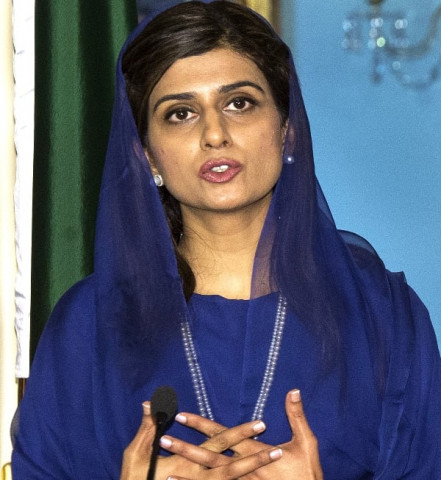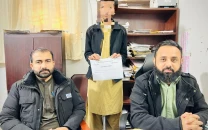UN Periodic Review: Islamabad reaffirms pledge to human rights
Khar says Pakistan’s resolve to combat terrorism remains unwavering.

Foreign Minister Hina Rabbani Khar on Tuesday said Pakistan strongly supports the promotion and application of universally recognised human rights.
In her opening statement at the 14th Session of the Universal Periodic Review (UPR) at the United Nations Human Rights Council in Geneva, the Foreign Minister said Pakistan’s resolve and commitment to combat terrorism remained unwavering.
However she termed the drone attacks as counter-productive, unlawful, against international law, and violation of sovereignty.
The foreign minister said Pakistan, as the chair of the OIC Group on Human Rights and Humanitarian Affairs in Geneva, has played a constructive role in building convergences between the West and Islamic world on the most contentious and challenging issues in the Human Rights Council.
She thanked Chile, China and Congo, for facilitating Pakistan’s review.
The foreign minister said Pakistan is a functional democracy with an elected and sovereign parliament, an independent judiciary, a free media and a vibrant and robust civil society.
Four years of promoting human rights
She said the reporting period (2008 to 2012) had been one of the most challenging in recent years for Pakistan.
The country continued to face challenges on different fronts, ranging from security and terrorism to the economy, apart from natural calamities. “Despite these serious challenges, we remain steadfast in our commitment to the promotion and protection of human rights,” she said.
Khar said in April 2010, the Parliament unanimously passed the 18th Amendment to the Constitution, addressing the many imbalances of power that had entered the legislative framework at the behest of military governments.
She said among the key features of the 18th Amendment is its strengthening of human rights guaranteed under the Constitution.
The Right to Education (Article 25A), Right to Information (Article 19A) and Right to Fair Trial (Article 10A) are now recognised as fundamental rights, which cannot be suspended, she added.
Pakistan ratified the International Covenant on Civil and Political Rights (ICCPR) and Convention Against Torture (CAT) in June 2010. She said in August 2011, Pakistan ratified the Convention on the Rights of Persons with Disabilities and the Option Protocol to the Convention on the Rights of the Child on the Sale of Children, Child Prostitution and Child Pornography.
Khar said Pakistan has now ratified seven out of nine core international human rights treaties. “We are now focused on implementing these instruments at the national level,” she said inviting UN High Commissioner for Human Rights to visit Pakistan.
Battle cry - Malala
Khar mentioned the courage of Mala Yousufzai who was targeted for raising voice for literacy for girls. She said, “Our future is what Malala represents: courageous, resilient, and full of an unquenchable thirst for knowledge.”
“In rejecting the dark vision of the terrorists, we are simultaneously embracing the bright future that Malala represents for 180 million people of Pakistan,” she said.
“We are aware of the challenges that we face in the realm of human rights,” she said and added that these challenges are not due to discriminatory government policies or lack of commitment to protect and uphold human rights.
Published in The Express Tribune, October 31st, 2012.



















COMMENTS
Comments are moderated and generally will be posted if they are on-topic and not abusive.
For more information, please see our Comments FAQ